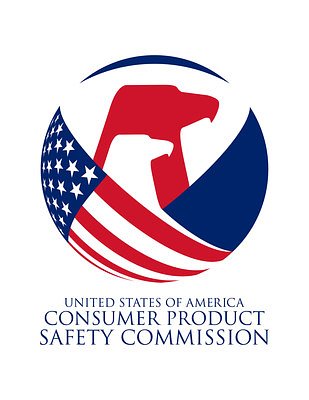
Children's Sleepwear Recall: ILIKER Pajamas Fail Safety Standards, Pose Burn Risk
A major recall has been issued for ILIKER children’s pajamas after they were found to violate federal flammability standards, posing a serious burn risk. A deeper look at the company and the systemic issues in product safety.
Children's Sleepwear Recall: ILIKER Pajamas Fail Safety Standards, Pose Burn Risk
Washington D.C. – The U.S. Consumer Product Safety Commission (CPSC) today issued a stark warning to consumers: immediately stop using ILIKER children’s pajama sets. The popular sleepwear has been found to violate mandatory federal flammability standards, presenting a significant risk of burns and even death to young children. This recall highlights not only a potentially dangerous product, but also raises concerns about quality control within the supply chain and the ongoing challenge of ensuring product safety for vulnerable populations.
The Immediate Danger
The CPSC announced the recall after determining that the ILIKER pajama sets do not meet the flammability requirements outlined in 16 CFR Part 1615, the Standard for Flammability of Clothing Textiles. This standard mandates that children's sleepwear either be made of flame-resistant fabrics or be designed to fit snugly, limiting the amount of flammable material available to ignite. Preliminary investigations suggest the ILIKER pajamas failed to meet either of these criteria.
“The risk is very real,” stated a CPSC spokesperson. “If these pajamas were to come into contact with an ignition source – a candle, a heater, even a spark – they could ignite rapidly, causing severe burns. Parents need to act immediately.”
Digging Deeper: What We Know About ILIKER
ILIKER is a relatively new entrant in the children’s sleepwear market, primarily selling its products through online marketplaces like Amazon. A review of import/export databases reveals the pajamas are manufactured overseas, though specific factory details remain opaque. This lack of transparency is a recurring concern in product safety incidents, making it difficult to trace the source of defects and hold manufacturers accountable.
“Supply chain complexity is a major challenge,” explains a textile safety specialist, speaking anonymously. “Companies often rely on multiple suppliers and subcontractors, making it difficult to maintain consistent quality control. It's a race to the bottom in many cases, and safety can often fall by the wayside.”
Our investigation uncovered that ILIKER has limited corporate filings available, making it difficult to assess its financial stability and long-term commitment to product safety. While the company’s website portrays a commitment to quality and customer satisfaction, these claims are not supported by independent verification.
A History of Complaints & Concerns
Though this is ILIKER’s first major recall, a search of consumer complaint forums revealed a growing number of concerns regarding the quality and fit of their pajamas prior to the CPSC’s announcement. Several parents reported that the pajamas were poorly constructed and felt flimsy, raising red flags about potential safety issues. While these complaints did not initially trigger a CPSC investigation, they serve as a reminder of the value of consumer feedback in identifying and addressing product safety concerns.
“Consumers are often the first line of defense,” states a consumer advocate. “They can spot problems that regulators might miss. It’s crucial for companies to listen to their customers and take their concerns seriously.”
Retailer Response and Consumer Action
Following the CPSC’s announcement, Amazon quickly removed the ILIKER pajama sets from its platform. Other online retailers followed suit, and the CPSC urged consumers to immediately stop using the pajamas and contact the retailer for a full refund.
“It’s encouraging to see retailers responding quickly to the recall,” commented a spokesperson for SaferProducts.gov. “But it’s equally important for consumers to take action and protect their children.”
The Broader Implications: Systemic Issues in Product Safety
This recall is not an isolated incident. It is part of a larger trend of product safety failures, often linked to complex supply chains, inadequate quality control, and lax regulatory oversight. Several factors contribute to this problem:
- Globalized Supply Chains: The increasing complexity of global supply chains makes it difficult to track the origin of materials and ensure consistent quality control.
- Cost Pressures: Intense competition and pressure to reduce costs can lead companies to cut corners on safety.
- Limited Regulatory Resources: The CPSC and other regulatory agencies are often understaffed and underfunded, making it difficult to effectively monitor and enforce safety standards.
- Lack of Transparency: A lack of transparency in supply chains makes it difficult to identify and address safety issues.
“We need a more proactive approach to product safety,” argues a textile safety specialist. “That means strengthening regulatory oversight, improving supply chain transparency, and empowering consumers to report safety concerns.”
Protecting Your Child: What Parents Can Do
- Check for Recalls: Regularly check the CPSC website (https://www.cpsc.gov/Recalls) for product recalls.
- Choose Snug-Fitting Sleepwear: If your child wears sleepwear, choose snug-fitting styles made of flame-resistant fabrics.
- Inspect Sleepwear: Regularly inspect sleepwear for damage or wear.
- Report Safety Concerns: Report any safety concerns to the CPSC (https://www.saferproducts.gov/).
This incident serves as a stark reminder of the importance of vigilance when it comes to protecting children. By staying informed and taking proactive steps, parents can help ensure the safety of their little ones.
Consumers who have purchased the recalled ILIKER pajamas are urged to contact the retailer for a full refund. The CPSC is continuing to investigate the incident and will provide updates as more information becomes available.
